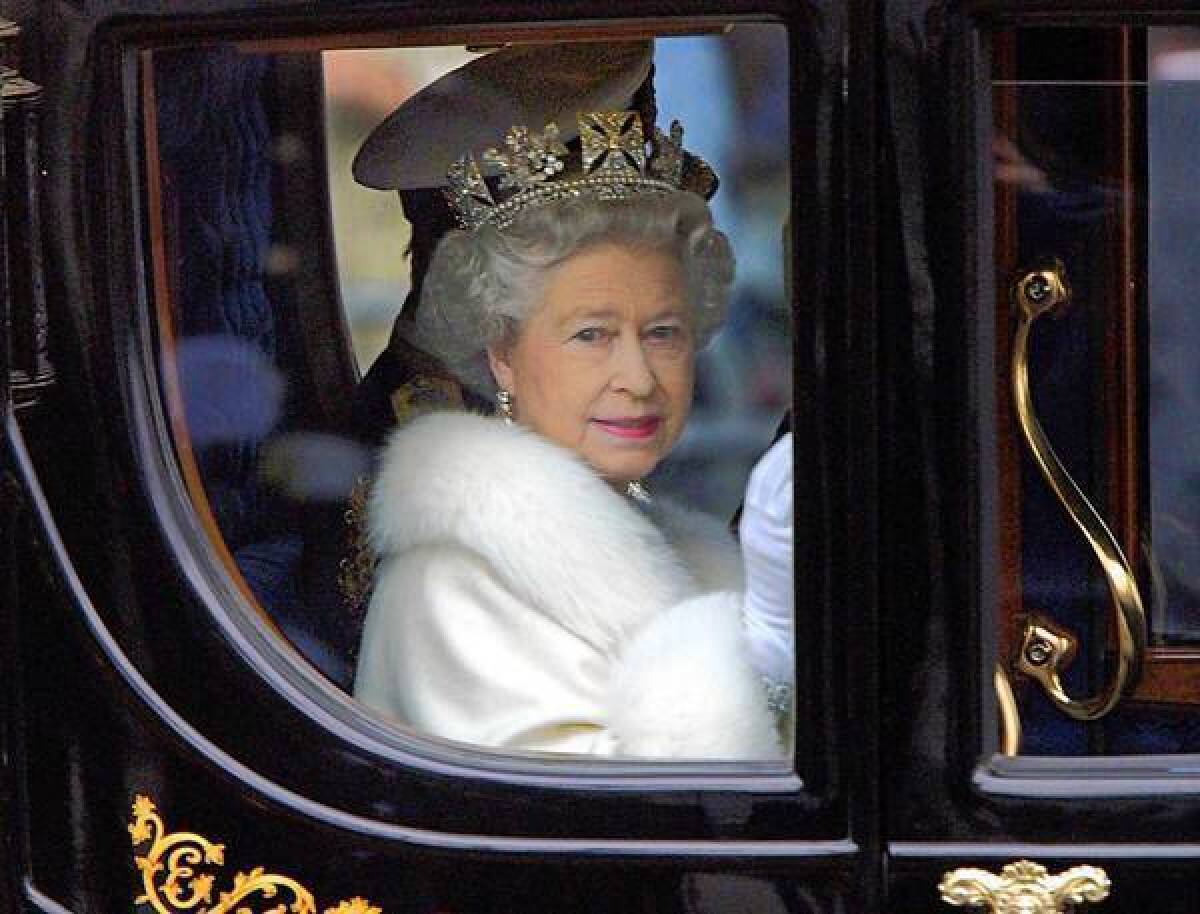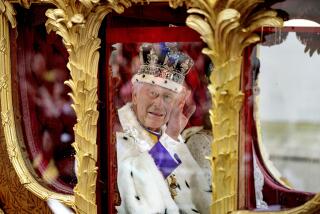Another battle royal

- Share via
Dan Turner’s July 4 paean to the Founding Fathers for their fight against British subjugation prompted reader Erica Hahn of Monrovia to write:
“The American revolutionaries went to war because they had no voice in the British Parliament. If we had been given a few seats, the revolution would have withered. We declared independence from the king only because we had already jettisoned our loyalty to the rest of Great Britain.
“Canada, Australia and various other former colonies established basic independence without a revolution, as ours was a wake-up call to the mother country that gradually allowing political independence was the logical thing to do.
“For my part, I love the queen, a lovely figurehead and voice of civility and national unity, and I hope that one day she will take us back.”
Dan Turner responds:
If I’d written a criticism of monarchy in, say, 1750, I would have expected quite a public backlash, not to mention a sentence to serve time in the stocks. But I was pretty surprised at the reaction from several Times readers in 2012 to my piece on the Founding Fathers, who freed this nation from the fundamental unfairness of kingship.
Some merely objected to the historical context of the piece, including one reader who said the Founding Fathers objected to King George III’s tyranny in particular and not the monarchy in general. Others such as Hahn asserted that the Revolutionary War might have been unnecessary and that having a queen, specifically Queen Elizabeth II, wouldn’t be so bad.
To question of how broadly the founders directed their revolutionary angst, I can only say that I cannot imagine a more anti-monarchist document than the Declaration of Independence. “We hold these truths to be self-evident, that all men are created equal.” To believe these words is to define oneself as an enemy of kings because the most fundamental aspect of kingship is inequality: The king is more equal than you are.
In Great Britain, of course, this doesn’t just apply to the queen but to the thousands of titled aristocrats whose families still own most of the country’s rural land, for little better reason than that they can trace their lineage to the rapacious Norman barons who helped William the Conqueror despoil England after 1066.
To Hahn’s point, I completely agree that the queen seems like a very nice lady who is, indeed, a figure of national unity. But I wonder if Hahn or anyone born in a country where individual rights are paramount would really want to have a system in which government isn’t of the people, by the people and for the people, but of the queen, by royal prerogative, for as long as people put up with it. Or whether today’s monarchists really think primogeniture, in which the succession goes to the eldest child, is a more reasonable basis than elections for changing one’s leaders.
To submit to a queen is to believe that some people are superior not because of their own merits, but because of divine right. How very medieval.
ALSO:
Letters: Choosing to be uninsured
Letters: Solving the ills of Social Security
Letters: A more corporate college model
More to Read
A cure for the common opinion
Get thought-provoking perspectives with our weekly newsletter.
You may occasionally receive promotional content from the Los Angeles Times.









